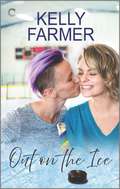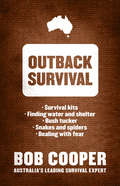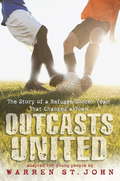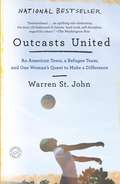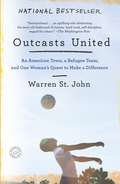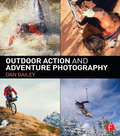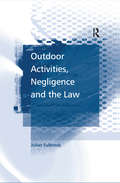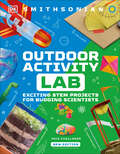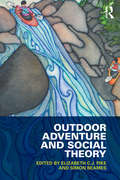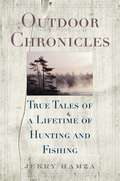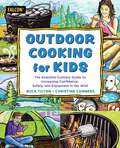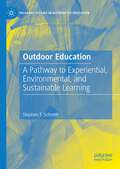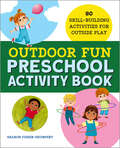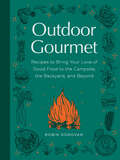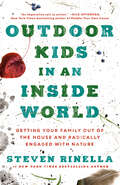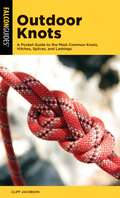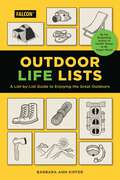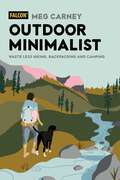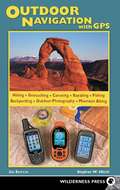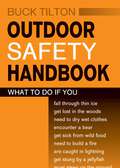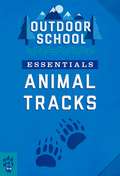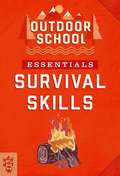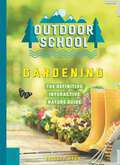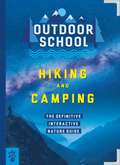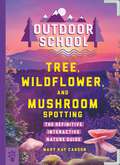- Table View
- List View
Out on the Ice: A WLW Hockey Romance (Out on the Ice #1)
by Kelly FarmerDon’t miss this tender and funny contemporary romance from debut author Kelly Farmer.Caro Cassidy used to be a legend.During her career, Caro was one of the best defense players in women’s hockey. These days, she keeps to herself. Her all-girls hockey camp is her life, and she hopes it’ll be her legacy. Sure, her new summer hire is charming and magnetic, but Caro keeps her work and personal life strictly separate.Amy Schwarzbach lives life out loud.Amy’s as bright and cheerful as her lavender hair, and she uses her high-profile position in women’s hockey to advocate for the things she believes in. Ten weeks in Chicago coaching a girls’ training camp is the perfect opportunity to mentor the next generation before she goes back to Boston.Letting love in means putting yourself out there.When the reticent head coach offers to help Amy get in shape for next season, her starstruck crush on Caro quickly blossoms into real chemistry. As summer comes to an end, neither of them can quite let go of this fling—but Amy can’t afford a distraction, and Caro can’t risk her relationship becoming public and jeopardizing the one thing that’s really hers.
Outback Survival
by Bob CooperOutback Survival is a timeless, practical run down on everything you need to know to survive in the outback.Bob Cooper's incredible bushcraft skills have been developed through more than 25 years of experience in Australia's harsh outback. He has picked up tools of survival from the experiences of living with traditional Aboriginal communities, instructing with Special Forces Units, lecturing with the Texas Parks and Wildlife Service on desert survival in the Mexican Desert, delivering wilderness lessons in the UK and learning the skills of the bushmen of the Kalahari Desert in Botswana.Bob has put his own lessons to the test, dropping himself off in the 42C heat of the Australian desert with only a map and soap box sized survival kit, no food, water or sleeping gear, and a 10 day walk across 160km of rough terrain back to safety. He did this alone and showed that with the right knowledge of the land, you can survive in even the harshest of conditions.The outback of Australia is one of the most unforgiving regions of the world, but Bob is committed to protecting and enhancing the experience people have when venturing out into the bush.
Outcasts United
by Warren St. JohnThis young people's version of the adult bestseller is a complex and inspirational story about the the Fugees, a youth soccer team made up of refugees from around the world, and their formidable female coach. Clarkston, Georgia, was a typical southern town until it became a refugee resettlement center. The author explores how the community changed with the influx of refugees and how a single individual made a difference in the lives of so many.
Outcasts United: An American Town, a Refugee Team, and One Woman's Quest to Make a Difference
by Warren St. JohnAt the center of the story is fiery Coach Luma, who relentlessly drives her players to success on the soccer field while holding together their lives--and the lives of their families--in the face of a series of daunting challenges.
Outcasts United: An American Town, a Refugee Team, and One Woman's Quest to Make a Difference
by Warren St. JohnThis young people's version of the adult bestseller is a complex and inspirational story about the the Fugees, a youth soccer team made up of refugees from around the world, and their formidable female coach. <P>Clarkston, Georgia, was a typical southern town until it became a refugee resettlement center. <P>The author explores how the community changed with the influx of refugees and how a single individual made a difference in the lives of so many.
Outdoor Action and Adventure Photography
by Dan BaileyThe difference between getting the shot and missing the shot comes down to split seconds and how you manage your gear and your technique. In Outdoor Action and Adventure Photography professional adventure sports photographer Dan Bailey shows readers how to react quickly to unfolding scenes and anticipate how the subject and the background might converge. Capturing those significant moments to produce powerful imagery that evoke the feel and mood of adventure requires specialized skills and a wide variety of creative ideas. This book teaches photographers how to think geometrically and how to pull together the elements that make for a successful shot, all while being immersed in the action. The practical manual will improve your technique for creating more compelling adventure imagery, whether you’re shooting ultra-marathoners splattered in mud, rock climbers in a crevasse, or mountain bikers hurtling past you. In this book, you’ll: • Discover the necessary equipment for shooting action, learn how to use it to its full potential, and develop a comprehensive adventure photography camera system that you can adapt to different shooting situations. • Learn specific techniques and creative ideas that help you freeze the moment and create images that convey excitement, mood, and the feel of adventure. • Learn advanced skills that can help you start defining your own particular style of action photography and create a "brand" of photography that’s based around your passion and your vision. • Examine case studies that break down the process for shooting different types of action subjects and see the nuts and bolts of how to create powerful imagery from start to finish.
Outdoor Activities, Negligence and the Law
by Julian FulbrookRecent years have witnessed several tragedies during school and youth expeditions. This in turn has led to legislation and the tight regulation of Outdoor Activity Centres, with successive governments issuing guidelines for teachers and others supervising such activities. Inevitably there will always be risk in relation to adventurous pursuits in the outdoors, but the law in this area seeks a balance between the educational benefits gained and the need to safeguard against potential hazards. Mythologies have arisen, including the suggestion that a 'blame culture' is so overwhelming that no youth worker or teacher can sensibly engage anymore in such activities. This succinct guide to the legal position refers to a wide range of outdoor activities and recent legal cases. It demolishes some of the myths, pointing out common pitfalls noted in the research and in the litigation, together with an outline of robust safety features to combat potential hazards.
Outdoor Activity Lab 2nd Edition (DK Activity Lab)
by Jack ChallonerWith a foreword by Robert Winston, this fun, fact-filled book is brimming with exciting outdoor experiments to help budding boffins explore the science in their own surroundings.Using easy-to-find household items, you can make giant bubbles to reveal how surface tension works, construct a water rocket and blast it skyward to learn about Newton's law of physics, discover how mushrooms grow by cultivating mycelium, and make your own barometer to measure atmospheric pressure ... and much more!Great photography, succinct step-by-step instructions, and rigorous attention to detail will make young scientists excited from the get-go. There is a clear How it works explanation for each project, revealing the fascinating science behind it, along with real-world examples that show everyday science in action.With 25 amazing projects to inspire young scientists and outdoor enthusiasts, Outdoor Activity Lab takes readers out of the house on a journey to better understand their world—perfect for every young scientist curious about the world.
Outdoor Adventure and Social Theory
by Simon Beames Elizabeth C.J. PikeAdventure and outdoor sports - from rock climbing to freestyle kayaking – are a modern social phenomenon that can tell us much about the relationship between sport, culture and contemporary society. In this engaging new introductory text, adventure sports are used to illustrate key concepts in social theory and to demonstrate why an understanding of social theory is essential for any student taking a course in sport, adventure, or outdoor education. Each chapter in the book introduces a key ‘classical’ or modern social theorist, including Marx, Durkheim, Weber and Elias, or a universal topic or issue in social theory, such as sustainability, commodification or identity. Within each of those chapters the theorist or topic is brought to life through case studies of adventurous activities and lived experiences, helping the reader to connect their own sporting and adventurous interests with the frameworks we use to understand wider culture and society. Concise and full of cutting-edge contemporary examples, Outdoor Adventure and Social Theory is the perfect companion for any module on the sociology of sport, adventure or outdoor recreation.
Outdoor Chronicles: True Tales of a Lifetime of Hunting and Fishing
by Joseph B. Healy Jerry HamzaWe hold a great affection for the deep tradition of American storytelling. The ability to spin a yarn that can hold our attention and provide a gentle direction for life is something that has been with us for a long time. "The Celebrated Jumping Frog of Calaveras County” by Mark Twain or Ernest Hemingway’s Nick Adams stories hold us with their gentle wit and carry us away for just a little while. In Outdoor Chronicles, Jerry Hamza takes up the gauntlet of the storyteller to take readers away for a little fun. There are already plenty of how-to fishing and outdoor books, and this is not one. Hamza’s stories will not make you a better caster or shooter, but they will make you want to spend more time fishing or hunting.This book is a collection of outdoor stories wrapped in the human condition. They were written with an eye toward honesty and cynicism. They will make you laugh out loud, and you will want to carry them with you wherever you go. If this book goes missing, it’s a sure thing that, when you do find it, it will be in the possession of a member of your household, regardless of their interest in casting a fly. The stories cover the gamut from a fishing trip to northern Canada to a little stream that was actually better than remembered, to how the baby boomers almost trampled a sport to death, to a solitary trek along railroad tracks during a cold, dark, and dreary February, and many more.Skyhorse Publishing is proud to publish a broad range of books for hunters and firearms enthusiasts. We publish books about shotguns, rifles, handguns, target shooting, gun collecting, self-defense, archery, ammunition, knives, gunsmithing, gun repair, and wilderness survival. We publish books on deer hunting, big game hunting, small game hunting, wing shooting, turkey hunting, deer stands, duck blinds, bowhunting, wing shooting, hunting dogs, and more. While not every title we publish becomes a New York Times bestseller or a national bestseller, we are committed to publishing books on subjects that are sometimes overlooked by other publishers and to authors whose work might not otherwise find a home.
Outdoor Cooking for Kids: The Essential Culinary Guide to Increasing Confidence, Safety, and Enjoyment in the Wild (For Kids)
by Buck Tilton Christine ConnersA vibrant, hands-on guide that makes mastering the art of cooking outdoors an unforgettable adventure for young chefsOutdoor Cooking for Kids delivers relevant, expertly curated outdoor cooking content perfect for kids. With colorful illustrations, activities, and anecdotes that strengthen the reader&’s understanding of the material, this is the perfect book to teach children how to cook safely outdoors with fun and delicious recipes. Key features include: Step-by-step instructions for essential outdoor cooking techniques Safety guidelines specifically designed for young chefs Kid-tested recipes that build skills progressively Interactive activities that reinforce learning Tips for making outdoor cooking a family adventure Written by outdoor education expert Buck Tilton and bestselling outdoor cookbook author Christine Conners, this comprehensive guide brings over four decades of wilderness expertise to your family's outdoor adventures.
Outdoor Education: A Pathway to Experiential, Environmental, and Sustainable Learning (Palgrave Studies in Alternative Education)
by Stephen T. SchrothThis book explores the phenomenon of outdoor education, an approach that permits children from all backgrounds to explore environmental, sustainability, and other issues facing them and their communities. Organized around both the conceptual and the practical issues facing school leaders interested in outdoor education, the book provides a wealth of resources for those interested in implementing outdoor education in their schools or classrooms. Infinitely flexible, outdoor education provides a lens through which teachers may explore any content area with any age group of children. Providing readers with both the theoretical underpinnings that support place-based curriculum as well as practical ways to implement an outdoor education program, the book also provides seven case studies that examine the issues facing school leaders desiring to make such a change. Outdoor Education: A Pathway to Experiential, Environmental, and Sustainable Learning guides those interested in exploring outdoor education through the curricular, instructional, and policy considerations needed to accomplish this goal.
Outdoor Fun Preschool Activity Book: 80 Skill-Building Activities for Outside Play
by Sharon Fisher-ShumpertBoost preschool skills with fun outdoor activities for kids 3 to 5 Kids learn best through play, and what better place to play than the great outdoors? This preschool activity book delivers hands-on projects that are easy to set up outside and inspire creative thinking. Little ones will strengthen their skills in letters, numbers, social development, and more with this standout among outdoor books. Supplement preschool learning with engaging activities kids can do at the park, beach, or backyard, and set the foundation for independent play. What sets this preschool book apart from other educational books: Learning through play—Kids will build their skills with 80 unique activities, like Scoot Ball and Pinecone Painters, which help with fine motor skills and sensory development. Year-round activities—Find a collection of outdoor projects fit for any season, so children can learn STEM concepts, movement, crafts, and more—no matter what the weather brings. Growth at a glance—Handy icons and labels throughout this best-in-class toddler activity book indicate what skills and subjects each activity helps improve. Give kids more reasons to love playing outside with this fun and educational preschool activity book.
Outdoor Gourmet: Recipes to Bring Your Love of Good Food to the Campsite, the Backyard, and Beyond
by Robin DonovanBring great eating to the great outdoors with more than 100 delicious recipes you can cook at your campsite—but will want to keep making at home!Getting in touch with nature doesn&’t need to mean subsisting on energy bars, canned beans, and prepackaged meals. With these easy-to-follow recipes, you can use your camp stove or firepit to whip up restaurant-worthy food that will satisfy any gourmand.Toss the trail mix, leave the hot dogs at home, and plan a totally new approach to outdoor eating. Wake up to Bananas Foster French Toast cooked on the camp stovePack Smoked Salmon and Wasabi Aram Sandwiches for an on-the-go hiking lunchRelax by the fire with a Savory Cheese S&’mores snackFeast under the stars on Mustard and Rosemary Lamb Chops and Roasted Beets with Citrus DressingAnd cook dozens more delicious recipes right at your campsite!Outdoor Gourmet includes advice on choosing a camp stove and stocking your kitchen-away-from-home, storage strategies for fresh foods, and tips for making your new favorite camping meals in a traditional kitchen or on a backyard grill so you can keep vacation going all year.Previously published as Campfire Cuisine, this edition has a fresh new look.
Outdoor Kids in an Inside World: Getting Your Family Out of the House and Radically Engaged with Nature
by Steven RinellaThe &“imperative call to action&” (Nick Offerman) for parenting tough, curious, and competent kids who feel at home in the outdoors, from the New York Times bestselling author and host of the TV series and podcast MeatEater&“A revelation for families struggling to get kids to GO OUTSIDE, or to just stop using the darn smartphone.&”—Michaeleen Doucleff, PhD, New York Times bestselling author of Hunt, Gather, ParentIn the era of screens and devices, the average American spends 90 percent of their time indoors, and children are no exception. Not only does this phenomenon have consequences for kids&’ physical and mental health, it jeopardizes their ability to understand and engage with anything beyond the built environment. Thankfully, with the right mind-set, families can find beauty, meaning, and connection in a life lived outdoors. Here, outdoors expert Steven Rinella shares the parenting wisdom he has garnered as a father whose family has lived amid the biggest cities and wildest corners of America. Throughout, he offers practical advice for getting kids radically engaged with nature in a muddy, thrilling, hands-on way, with the ultimate goal of helping them see their own place within the natural ecosystem. No matter their location—rural, suburban, or urban—caregivers and kids will bond over activities such as: • Camping to conquer fears, build tolerance for dirt and discomfort, and savor the timeless pleasure of swapping stories around a campfire. • Growing a vegetable garden to develop a capacity to nurture and an appreciation for hard work. • Fishing local lakes and rivers to learn the value of patience while grappling with the possibility of failure.• Hunting for sustainably managed wild game to face the realities of life, death, and what it really takes to obtain our food. Living an outdoor lifestyle fosters in kids an insatiable curiosity about the world around them, confidence and self-sufficiency, and, most important, a lifelong sense of stewardship of the natural world. This book helps families connect with nature—and one another—as a joyful part of everyday life.
Outdoor Knots: A Pocket Guide to the Most Common Knots, Hitches, Splices, and Lashings (Falcon Pocket Guides)
by Cliff JacobsonOutdoor Knots is the latest in Falcon's popular Pocket Guide series and delivers relevant, expertly curated content in a convenient, travel-ready package. Outdoor skills expert and veteran author Cliff Jacobson provides readers with accessible information on choosing the best knot for the situation, tying different types of common knots and hitches, selecting the best kinds of rope, and much more. With step-by-step instructions (for both righties and lefties!) on tying the most used and useful knots, this is a book to keep with your gear, in your car, or on your person at all times.
Outdoor Life Lists: A List-by-List Guide to Enjoying the Great Outdoors
by Barbara Ann KipferOutdoor Life Lists is an informative celebration of the outdoors. Look inside to find 73 checklists covering the essentials needed and potential extras to consider for enjoying outdoor sports, recreation, and activities. These lists cover the things you need to bring and wear to participate fully and safely in every activity. Also included are informative callout lists that may come in handy in various outdoor situations. To top it off, other callouts offer snippets describing things one may observe during the outdoor activity.
Outdoor Minimalist: Waste Less Hiking, Backpacking and Camping
by Meg CarneyWe love the outdoors. We want to take care of it and we want to enjoy it. But with an excess of packaged food, single-use disposables and convenient consumables, are we loving the land to death?Outdoor enthusiasts are more galvanized than ever to be good stewards of the land on which they recreate. Here, for the first time, is the central, reliable guide to hiking and backpacking with minimal impact that outdoor enthusiasts need. Outdoor Minimalist is a guide to actionable ways to waste less while hiking and camping and implement low-impact practices in outdoor pursuits.Look inside to find:Waste reduction tips and tricks for beginners and experts alikeThe seven R&’s of outdoor minimalism: reduce, refuse, rethink, repair, rehome/repurpose, remove, restorePacking lists to waste less with every trip you plan
Outdoor Navigation with GPS
by Stephen W. HinchFor outdoor adventurers who hike, fish, kayak, cross-country ski, or mountain bike in the backcountry, a GPS receiver can help them reach their destination and return safely - but only if they know how to use it! Here is the guide to getting the most out of a GPS receiver, from basic consumer advice to advanced techniques. It even includes fun solo and team games that utilize GPS. Starting with essential definitions and moving on to creating waypoints, and using your GPS with a computer, this succinct book teaches the basics of navigation and outdoor GPS use. Advanced techniques are covered, such as creating custom maps, and new technologies are discussed, including using GPS-enabled mobile phones, and how to use GPS with Google Earth and Google Maps. With years of experience as a GPS instructor, Hinch is well-versed in all aspects of navigation and GPS use, and he covers them in a jargon-free, easy-to-follow style.
Outdoor Safety Handbook
by Buck TiltonEasy-to-use format: Each page covers one situation. Essential for hikers, hunters, anglers, birders, campers and all who spend time outdoors.
Outdoor School Essentials: Animal Tracks (Outdoor School)
by Odd DotOUTDOOR SCHOOL ESSENTIALS: ANIMAL TRACKS is your must-have companion to the wild. These pocket-sized books from Odd Dot have quick references for what you need to know while on your next outdoor adventure.Flip through for simple diagrams and full-color illustrations on animal, reptile, and fish spotting, animal tracks, and so much more.Made of durable Tyvek material, these books are meant to last through any adventure! Waterproof and tear-proof makes these the perfect pocket-sized trove of information for kids to take outside. They're also 100% washable and 100% fun!Easy to digest at a glance, these travel-friendly books are made even more beautiful with full-color, vintage-inspired art and highly visual diagrams.
Outdoor School Essentials: Survival Skills (Outdoor School)
by Odd DotOUTDOOR SCHOOL ESSENTIALS: SURVIVAL SKILLS is your must-have companion to the wild! These pocket-sized books from Odd Dot have quick references for what you need to know while on your next outdoor adventure. Flip through for simple diagrams and full-color illustrations on pitching tents, making a fire, first-aid, poisonous plants, dangerous animals, and more.Made of durable Tyvek material, these books are meant to last through any adventure! Waterproof and tear-proof makes these the perfect pocket-sized trove of information for kids to take outside. They're also 100% washable and 100% fun!Easy to digest at a glance, these travel-friendly books are made even more beautiful with full-color, vintage-inspired art and highly visual diagrams.
Outdoor School: The Definitive Interactive Nature Guide (Outdoor School)
by Bridget HeosIn this next gift-worthy, full-color, definitive guide in the Outdoor School line, discover the rich possibilities of gardening.With over 400 pages of full-color, highly illustrated pages, Outdoor School is your indispensable tool for the outdoors. Fully illustrated, highly designed, gorgeous and interactive, this field guide to gardening includes:- Immersive activities to get you growing- Write-in sections to journal about experiences- Next-level adventures to challenge even seasoned gardenersNo experience is required—only curiosity and courage. Inside you’ll find easy-to-follow instructions on how to:- Sprout plants from seed- Grow plants indoors and outdoors- Create delicious combinations of herbs and vegetables- Care for fruits, vegetables, flowers, herbs, and beyond- Design the garden of your dreams and so much more!
Outdoor School: The Definitive Interactive Nature Guide (Outdoor School)
by Jennifer Pharr Davis Haley BlevinsRewild your life! With metal corners and 448 full-color, highly illustrated pages, OUTDOOR SCHOOL: HIKING AND CAMPING is an indispensable tool for young explorers and nature lovers.Make every day an adventure with the included:- Immersive activities to get you exploring- Write-in sections to journal about experiences- Next-level adventures to challenge even seasoned nature loversNo experience is required—only curiosity and courage. This interactive field guide to hiking and camping includes:- Planning your next adventure- Essential outdoor gear- First aid & survival- Navigation- How to handle extreme weather- Crossing dangerous terrain- Setting up camp- Building a fire in rain or shine- Games for the trail- Finding and filtering water- Animal tracks, calls, and sounds- Bird watching- Plant spotting- Rock hunting- What to do if you’re lostAnd so much more!
Outdoor School: The Definitive Interactive Nature Guide (Outdoor School)
by Mary Kay CarsonWith 448 full-color, highly-illustrated pages, Outdoor School is your indispensable tool for the outdoors. This interactive field guide to plant and mushroom spotting includes:- Immersive activities to get you exploring- Write-in sections to journal about experiences- Next-level adventures to challenge even seasoned nature lovers.No experience is required—only curiosity and courage. Inside you’ll find easy-to-follow instructions on how to:- Grow mushrooms with cardboard- Compare bark types- Count tree rings- Survey leaf patterns- Create fern spore prints- Press and preserve wildflowersAnd so much more!
